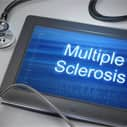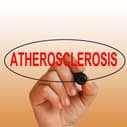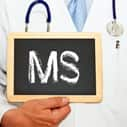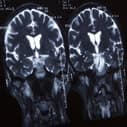
What's hot
What's hot
News flashes are posted here frequently to keep you up-to-date with the latest advances in health and longevity. We have an unparalleled track record of breaking stories about life extension advances.
Serotonin may be link between vitamin D/omega 3 and improvement in brain disorders
 February 27 2015. The second part of a two-part article published on February 24, 2015 in The FASEB Journal offers an explanation for the improvement in several disorders of the brain that has observed in association with vitamin D and omega 3 fatty acid supplementation.
February 27 2015. The second part of a two-part article published on February 24, 2015 in The FASEB Journal offers an explanation for the improvement in several disorders of the brain that has observed in association with vitamin D and omega 3 fatty acid supplementation.
"Here, we synthesize previous findings that serotonin regulates executive function, sensory gating, and social behavior and that attention deficit hyperactivity disorder, bipolar disorder, schizophrenia, and impulsive behavior all share in common defects in these functions," write authors Bruce N. Ames, PhD, and Rhonda Patrick , of Children's Hospital Oakland Research Institute. "It has remained unclear why supplementation with omega-3 fatty acids and vitamin D improve cognitive function and behavior in these brain disorders."
In the first part of the article, published in 2014, Drs Ames and Patrick reveal the involvement of vitamin D in the conversion of tryptophan into serotonin, a hormone that affects mood, behavior and other brain-related functions, and the relevance of the finding to autism. In part two they examine the relevance of vitamin D and omega 3 for attention deficit hyperactivity disorder (ADHD), bipolar disorder, poor impulse control and schizophrenia. "We link serotonin production and function to vitamin D and omega-3 fatty acids, suggesting one way these important micronutrients help the brain function and affect the way we behave," Dr Patrick stated.
"Vitamin D, which is converted to a steroid hormone that controls about 1,000 genes, many in the brain, is a major deficiency in the US and omega-3 fatty acid deficiencies are very common because people don't eat enough fish," added Dr Ames.
"This model suggests that optimizing vitamin D and marine omega-3 fatty acid intake may help prevent and modulate the severity of brain dysfunction," the authors conclude.
—D Dye
More Americans support faster drug approval
 February 25 2015. Many U.S. citizens believe that new drug approval should occur more rapidly and that the new 114th Congress take action on pharmaceutical development and delivery, according to the results of polls conducted by the nonprofit organization Research!America.
February 25 2015. Many U.S. citizens believe that new drug approval should occur more rapidly and that the new 114th Congress take action on pharmaceutical development and delivery, according to the results of polls conducted by the nonprofit organization Research!America.
"The new Congress has the opportunity to reinvigorate our research ecosystem and enact policies that will enable the private sector to expand innovation," Research!America Chair John Edward Porter remarked. "Congress must work in a bipartisan fashion to realize the potential of promising studies to prevent and treat disease."
In 2015, 38% of Americans were of the opinion that the U.S. Food and Drug Administration (FDA) should act more rapidly to secure approval of new therapies for patients in need of them, despite potential risks—a figure that is up from 30% in 2013. Nearly half of poll respondents believe that increased health care research is part of the solution to high medical costs.
"Our polls show that Americans view research as an economic driver as well as being the answer to health threats that continue to outrun us," revealed Research!America President and CEO Mary Woolley. "Americans expect our elected officials to provide sufficient resources and 21st century policies to speed development of the therapies, devices, prevention and cures necessary to save lives and maintain our global competitiveness."
"America's physicians witness each day the difference that medical and scientific innovation makes in the lives of patients," commented James L. Madara, MD, who is CEO and Executive Vice President of the American Medical Association. "Like Research!America, the American Medical Association is committed to improving the health of the nation and ardently supports funding for medical research that not only generates lifesaving discoveries, but also fuels economic growth by increasing jobs and productivity, and helps control health care costs."
—D Dye
Diets of multiple sclerosis patients may be lower in important nutrients
 February 24 2015. A report scheduled for presentation at the American Academy of Neurology's 67th Annual Meeting in Washington, DC, which will be held April 18 to 25, 2015, reveals a reduction in the intake of several antioxidant and anti-inflammatory nutrients in women with multiple sclerosis (MS) in comparison with healthy individuals. "The recent increasing incidence of multiple sclerosis has led to the hypothesis that dietary or nutritional changes related to inflammation and neurological health may contribute to risk of the disease," note authors Sandra D. Cassard, ScD, of John Hopkins University in Baltimore.
February 24 2015. A report scheduled for presentation at the American Academy of Neurology's 67th Annual Meeting in Washington, DC, which will be held April 18 to 25, 2015, reveals a reduction in the intake of several antioxidant and anti-inflammatory nutrients in women with multiple sclerosis (MS) in comparison with healthy individuals. "The recent increasing incidence of multiple sclerosis has led to the hypothesis that dietary or nutritional changes related to inflammation and neurological health may contribute to risk of the disease," note authors Sandra D. Cassard, ScD, of John Hopkins University in Baltimore.
The current investigation included 27 women with MS and 30 healthy women between 18 and 60 years of age who provided information concerning dietary intake over the year prior to enrollment in a study of the effects of vitamin D supplementation. Diets of women with MS provided less folate, vitamin E, lutein and zeaxanthin, magnesium and quercetin than those of healthy women. While healthy participants had an intake of folate that averaged 321 micrograms (mcg) per day, those with MS consumed 244 mcg daily, and magnesium averaged 254 milligrams (mg) in MS patients compared to 321 mg among the healthy group. Women with MS also consumed a lower percentage of calories in the form of fat.
"Since MS is a chronic inflammatory disorder, having enough nutrients with anti-inflammatory properties may help prevent the disease or reduce the risk of attacks for those who already have MS," Dr Cassard suggested. "Antioxidants are also critical to good health and help reduce the effects of other types of damage that can occur on a cellular level and contribute to neurologic diseases like MS. Whether the nutritional differences that we identified in the study are a cause of MS or a result of having it is not yet clear."
—D Dye
Review emphasizes Physician's Health Study II finding of cancer-protective benefits associated with multinutrient supplementation
 February 20 2015. An article published in the January 2015 issue of the journal Postgraduate Medicine reviews findings from the Physician's Health Study II and other trials that examined the protective effect of supplementation with multivitamin and mineral formulas on the risk of cancer. The authors stress the potential public health impact of an 8% reduction in the risk of developing cancer over a decade experienced by men enrolled in the Physician's Health Study II who consumed the supplements.
February 20 2015. An article published in the January 2015 issue of the journal Postgraduate Medicine reviews findings from the Physician's Health Study II and other trials that examined the protective effect of supplementation with multivitamin and mineral formulas on the risk of cancer. The authors stress the potential public health impact of an 8% reduction in the risk of developing cancer over a decade experienced by men enrolled in the Physician's Health Study II who consumed the supplements.
"The purpose of this review is to closely evaluate evidence from randomized controlled trials in the last 20 years evaluating the effect of multivitamin/mineral supplementation—either alone or in combination with other individual vitamin or mineral supplements— on cancer risk, with a focus on results from the recent Physicians’ Health Study II (PHS II)," authors Mary L. Hardy and Karen Duvall of the University of California, Los Angeles write. "Because the PHS II study is the first large, well-designed, randomized, controlled trial with a long duration of follow-up utilizing a multivitamin/mineral alone, we also are summarizing results of large-scale studies with individual vitamins and minerals to provide context."
Three trials of multinutrient supplements were included in the current review. Trials other than PHS II involved residents of Linxian County, China whose high rate of cancer and other population differences rendered their positive findings concerning supplementation somewhat inapplicable to Western populations.
"The results from PHS II suggest a favorable benefit/risk ratio of multivitamin/mineral supplements containing RDA doses of vitamins and minerals with regard to both primary and secondary cancer prevention in men ≥ 50 years," the authors conclude. "Based on these results, multivitamin/mineral supplements may play a role in long-term health maintenance, even in a generally healthy, well-nourished population, such as the current majority of multivitamin/mineral consumers."
—D Dye
How calorie restriction can reduce inflammation
 February 18 2015. On February 16, 2015 in the journal Nature Medicine, Yale researchers report that a compound produced during calorie restriction may act to reduce inflammation such as occurs in type 2 diabetes, Alzheimer's disease and atherosclerosis.
February 18 2015. On February 16, 2015 in the journal Nature Medicine, Yale researchers report that a compound produced during calorie restriction may act to reduce inflammation such as occurs in type 2 diabetes, Alzheimer's disease and atherosclerosis.
"Prolonged fasting reduces inflammation; however, the impact that ketones and other alternative metabolic fuels produced during energy deficits have on the innate immune response is unknown," write Youn Yee-Hum of Yale School of Medicine and colleagues in their introduction to the article. The current research centers on a metabolite known as beta-hydroxybutyrate (BHB) that is produced during calorie restriction, consumption of a low carbohydrate ketogenic diet or high-intensity exercise. BHB was found to play a role in the inhibition of NLRP3, a protein that is a member of the inflammasome that produces the inflammatory response in a number of disorders. The inhibitory effects of BHB on NLRP3 were determined to be independent of AMP-activated protein kinase (AMPK), reactive oxygen species, autophagy or glycolytic inhibition. In an experiment involving mice, BHB or a low carbohydrate diet reduced caspase-1 activation (involved in the activation of inflammatory processes) and secretion of the cytokine interleukin-1beta.
"These findings are important because endogenous metabolites like BHB that block the NLRP3 inflammasome could be relevant against many inflammatory diseases, including those where there are mutations in the NLRP3 genes," commented senior author Dr Vishwa D. Dixit who is a professor in the Section of Comparative Medicine at Yale School of Medicine. "Our results suggest that the endogenous metabolites like BHB that are produced during low-carb dieting, fasting, or high-intensity exercise can lower the NLRP3 inflammasome."
—D Dye
Increased klotho expression shows protective effect against Alzheimer's disease symptoms
 February 16 2015. The February 11, 2015 issue of the Journal of Neuroscience reported the discovery of researchers at the Gladstone Institutes and the University of California, San Francisco (UCSF) of a protective effect for klotho, a protein linked with longevity, against the effects of Alzheimer's disease in a mouse model.
February 16 2015. The February 11, 2015 issue of the Journal of Neuroscience reported the discovery of researchers at the Gladstone Institutes and the University of California, San Francisco (UCSF) of a protective effect for klotho, a protein linked with longevity, against the effects of Alzheimer's disease in a mouse model.
Using mice bred to exhibit Alzheimer's disease symptoms, Dena B. Dubal, MD, PhD, and colleagues further modified the animals to produce higher levels of klotho which, when overexpressed, extends lifespan, increases synaptic plasticity and enhances cognition. They found that elevated klotho expression reduced premature mortality and network dysfunction, while improving spatial learning and memory.
"It's remarkable that we can improve cognition in a diseased brain despite the fact that it's riddled with toxins," commented Dr Dubal, who is an assistant professor of neurology and the David A. Coulter Endowed Chair in Aging and Neurodegenerative Disease at UCSF. "In addition to making healthy mice smarter, we can make the brain resistant to Alzheimer-related toxicity. Without having to target the complex disease itself, we can provide greater resilience and boost brain functions."
Dr Dubal and associates suggest that klotho's benefits could be due to an ability to help the brain maintain its NMDA receptors, which become impaired in Alzheimer's disease. Mice with increased klotho expression were found to have normal NMDA receptor levels in comparison with the control animals in the current study.
"The next step will be to identify and test drugs that can elevate klotho or mimic its effects on the brain," senior author Lennart Mucke, MD, added. "We are encouraged in this regard by the strong similarities we found between klotho's effects in humans and mice in our earlier study. We think this provides good support for pursuing klotho as a potential drug target to treat cognitive disorders in humans, including Alzheimer's disease."
—D Dye
Insufficient vitamin D levels associated with poor stroke outcomes
 February 13 2015. The American Stroke Association's International Stroke Conference 2015 held in Nashville February 11-13, 2015 was the site of a presentation of the finding of a greater risk of severe strokes and worsened health during the months that followed among individuals with poor vitamin D status.
February 13 2015. The American Stroke Association's International Stroke Conference 2015 held in Nashville February 11-13, 2015 was the site of a presentation of the finding of a greater risk of severe strokes and worsened health during the months that followed among individuals with poor vitamin D status.
Nils Henninger, MD, and his associates evaluated 25-hydroxyvitamin D levels in 96 stroke patients seen between January 2013 and January 2014 at a U.S. hospital. Among those with low vitamin D levels, defined as less than 30 nanograms per milliliter (ng/mL), there was approximately twice the area of dead tissue observed in both lacunar and nonlacunar strokes in comparison with those whose levels were higher. (Lacunar strokes involve small brain arteries, as opposed to nonlacunar strokes that are caused by carotid disease or clots that have migrated from another part of the body.) Dr Henninger and his associates found that for each 10 ng/mL decline in 25-hydroxyvitamin D there was a reduction of nearly 50% in the chance of healthy recovery within the three months following the event.
"Many of the people we consider at high risk for developing stroke have low vitamin D levels," noted Dr Henninger, who is an assistant professor of neurology and psychiatry at University of Massachusetts Medical School in Worcester. "Understanding the link between stroke severity and vitamin D status will help us determine if we should treat vitamin D deficiency in these high-risk patients."
"It's too early to draw firm conclusions from our small study, and patients should discuss the need for vitamin D supplementation with their physician," he added. "However, the results do provide the impetus for further rigorous investigations into the association of vitamin D status and stroke severity. If our findings are replicated, the next logical step may be to test whether supplementation can protect patients at high risk for stroke."
—D Dye
Childhood vitamin D deficiency predicts atherosclerosis later in life
 February 11 2015. An article published in the Journal of Clinical Endocrinology & Metabolism reveals a link between childhood vitamin D deficiency and subclinical atherosclerosis in adulthood.
February 11 2015. An article published in the Journal of Clinical Endocrinology & Metabolism reveals a link between childhood vitamin D deficiency and subclinical atherosclerosis in adulthood.
The investigation involved 2,148 participants in the Cardiovascular Risk in Young Finns Study, who were between the ages of 3 and 18 years upon enrollment in 1980. Ultrasound studies conducted in 2007 assessed left carotid artery intima media thickness, which is a marker of atherosclerosis. Stored serum samples collected in 1980 were analyzed for 25-hydroxyvitamin D [25(OH)D] in 2010.
Decreased levels of 25(OH)D were associated with greater carotid artery intima media thickness, indicating increased atherosclerosis. "Our results showed an association between low 25-OH vitamin D levels in childhood and increased occurrence of subclinical atherosclerosis in adulthood," stated lead author Markus Juonala, MD, PhD, of Finland's University of Turku. "The association was independent of conventional cardiovascular risk factors including serum lipids, blood pressure, smoking, diet, physical activity, obesity indices and socioeconomic status."
As possible mechanisms involved in the current findings, the authors note that calcitriol, the biologically active form of vitamin D, contributes to vascular proliferation while inhibiting calcification. Due to its role as an immune modulator, calcitriol also helps reduce early life infections that may contribute to the development of cardiovascular risk.
"Our findings suggest that suboptimal vitamin D levels in childhood should be considered a possible risk factor for adult cardiovascular disease, although the therapeutic implications are unknown," Dr Juonala and colleagues write. "This is in keeping with current dietary recommendations supporting the use of supplemental vitamin D during childhood."
"More research is needed to investigate whether low vitamin D levels have a causal role in the development increased carotid artery thickness," Dr Juonala added. "Nevertheless, our observations highlight the importance of providing children with a diet that includes sufficient vitamin D."
—D Dye
CoQ10 helps relieve depression and fatigue experienced by MS patients
 February 9 2015. An article published online on January 20, 2015 in Nutritional Neuroscience reports improvements in fatigue and depression in men and women in with multiple sclerosis (MS) who supplemented with coenzyme Q10 (CoQ10).
February 9 2015. An article published online on January 20, 2015 in Nutritional Neuroscience reports improvements in fatigue and depression in men and women in with multiple sclerosis (MS) who supplemented with coenzyme Q10 (CoQ10).
Researchers in Iran randomized 4 men and 44 women with MS to receive 500 milligrams CoQ10 per day or a placebo for 12 weeks. Fatigue and depression, assessed at examinations conducted before and after treatment, did not differ between the groups.
Fatigue severity scale scores increased in the placebo group by the end of the study, while decreasing significantly among those who received CoQ10, indicating improvement. Similar changes were observed in Beck depression inventory scores.
"To the best of our knowledge, our study is the first one that assesses anti-depression effect of CoQ10 in multiple sclerosis patients," authors Meisam Sanoobar of Tehran University of Medical Sciences and associates announce. They observe that depression has been hypothesized to be accompanied by neurodegeneration and inflammation, and that CoQ10's antioxidant and anti-inflammatory activities may suppress these pathways. Inflammation also plays a role in fatigue, which can be significantly increased in multiple sclerosis patients. Dr Sanoobar and colleagues note that previous research uncovered improvement in fatigue and physical performance in association with the intake of 300 mg CoQ10, however, 100 mg per day was not sufficient to impact the fatigue, indicating a need for high dose supplementation.
"It is concluded that anti-fatigue effects of CoQ10 could appear in adequate and high doses of CoQ10 supplement by suppressing proinflammatory cytokines and enhancing antioxidant capacity," they write. "Larger and long-term follow-up studies would be necessary to confirm protective effects of CoQ10 against fatigue and depression."
—D Dye
Resveratrol helps maintain memory, learning in aged rats
 February 6 2015. In an article published on January 28, 2015 in Scientific Reports, researchers at Texas A&M University describe a benefit for resveratrol in the maintenance of cognitive function in older rats.
February 6 2015. In an article published on January 28, 2015 in Scientific Reports, researchers at Texas A&M University describe a benefit for resveratrol in the maintenance of cognitive function in older rats.
Ashok K. Shetty, PhD, and his associates divided 23-month-old rats to receive resveratrol or a placebo for four weeks. Learning ability and memory were evaluated prior to treatment and at approximately 25 months of age.
While spatial learning/memory formation abilities were similar in both groups prior to treatment, animals that received resveratrol showed improvement in these abilities at 25 months. "The results of the study were striking," reported Dr Shetty, who is the Director of Neurosciences at the Institute for Regenerative Medicine at Texas A&M's Health Science Center College of Medicine. "They indicated that for the control rats who did not receive resveratrol, spatial learning ability was largely maintained but ability to make new spatial memories significantly declined between 22 and 25 months. By contrast, both spatial learning and memory improved in the resveratrol-treated rats."
"The study provides novel evidence that resveratrol treatment in late middle age can help improve memory and mood function in old age," he concluded.
Examination of the rats' brains revealed significantly increased neurogenesis and improved microvasculature in those that received resveratrol in comparison with the control group. There was also less inflammation in the hippocampus, an area that is vital for learning, memory and mood.
The authors list increased expression of the longevity gene SIRT1, altered expression of nuclear factor kappa-beta (NF-kB), activation of adenosine monophosphate activated protein kinase (AMPK), improved glucose metabolism, and other factors as possible mechanisms for improvements in cognitive function observed in association with resveratrol. "Studies on these aspects at different time-points after resveratrol treatment in aging models will be needed in the future to understand their role," they note.
—D Dye
SuperAger brains are different
 February 4 2015. The January 28, 2015 issue of the Journal of Neuroscience reveals a significant difference between the brains of "normal" 80-year-olds and those of so-called "SuperAgers" of the same chronologic age. "SuperAgers" is a term applied to men and women who retain good episodic memory function well into their advanced years. The current study found that the brains of these individuals appear to be approximately 30 years younger than others of their age group.
February 4 2015. The January 28, 2015 issue of the Journal of Neuroscience reveals a significant difference between the brains of "normal" 80-year-olds and those of so-called "SuperAgers" of the same chronologic age. "SuperAgers" is a term applied to men and women who retain good episodic memory function well into their advanced years. The current study found that the brains of these individuals appear to be approximately 30 years younger than others of their age group.
"The brains of the SuperAgers are either wired differently or have structural differences when compared to normal individuals of the same age," commented senior author Changiz Geula, who is a research professor at the Cognitive Neurology and Alzheimer's Disease Center at Northwestern University Feinberg School of Medicine. "It may be one factor, such as expression of a specific gene, or a combination of factors that offers protection."
Subsequent to finding a region of the brain's anterior cingulate cortex that was thicker in SuperAgers in comparison with healthy 50- to 65-year-olds, the researchers utilized magnetic resonance imaging of the cingulate cortex to compare SuperAgers, cognitively average older men and women, and those who had mild cognitive impairment. The researchers found that, in addition to a thicker and larger cingulate cortex, SuperAgers had 90% fewer neurofibrillary tangles of the type observed in Alzheimer's disease, and increased density of von Economo neurons related to social intelligence. "It's thought that these von Economo neurons play a critical role in the rapid transmission of behaviorally relevant information related to social interactions, which is how they may relate to better memory capacity," Dr Geula explained. "These cells are present in such species as whales, elephants, dolphins and higher apes."
First author Tamar Gefen predicted that "Identifying the factors that contribute to the SuperAgers' unusual memory capacity may allow us to offer strategies to help the growing population of 'normal' elderly maintain their cognitive function and guide future therapies to treat certain dementias."
—D Dye
Mayo Clinic Proceedings review rejects association between testosterone therapy and cardiovascular risk
 February 2 2015. The February 2015 issue of Mayo Clinic Proceedings published an article by Abraham Morgentaler, MD, and colleagues which asserts that fears of cardiovascular disease that have recently been raised in regard to testosterone replacement therapy are unfounded.
February 2 2015. The February 2015 issue of Mayo Clinic Proceedings published an article by Abraham Morgentaler, MD, and colleagues which asserts that fears of cardiovascular disease that have recently been raised in regard to testosterone replacement therapy are unfounded.
“Testosterone has been presented as if there were a debate about whether it is good or evil,” stated Dr Morgentaler, who is the director of Men’s Health Boston and a urologist at Beth Israel Deaconess Medical Center. “Rather, it is a long-accepted medical treatment for a medical condition recognized for centuries."
For their comprehensive review, the authors selected articles published between 1940 and August 2014 on the subject of testosterone and cardiovascular disease and its risk factors. Articles included those on the relationship between testosterone and mortality, incident coronary artery disease, severity of coronary artery disease, ischemic stroke, carotid intima-media thickness, obesity/fat mass, lipid profiles, glycemic control, and inflammatory markers. "Only 4 articles were identified that suggested increased cardiovascular risks with testosterone prescriptions: 2 retrospective analyses with serious methodological limitations, 1 placebo-controlled trial with few major adverse cardiac events, and 1 meta-analysis that included questionable studies and events," they observe. "In contrast, several dozen studies have reported a beneficial effect of normal testosterone levels on cardiovascular risks and mortality."
The review includes a list of 29 professional societies worldwide calling for a retraction of the article by Vigen et al., published in 2013 in the Journal of the American Medical Association, which "reported increased rates of MIs, strokes, and deaths in men who received testosterone prescriptions compared with untreated men; this study used unvalidated statistical methodology that reversed the raw data, which actually revealed that the percentage of adverse events in testosterone-treated men was lower by half compared with untreated men."
“There’s no good evidence that we could find that testosterone therapy increases cardiovascular risk,” Dr Morgentaler concluded. “That’s not to say it’s perfectly safe. But we cannot find evidence and the headlines that jumped out on recent retrospective studies appear to be too strong.”
—D Dye
